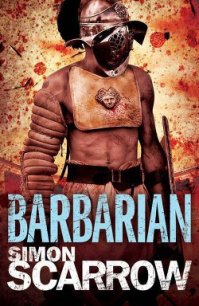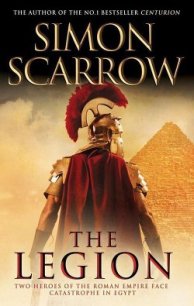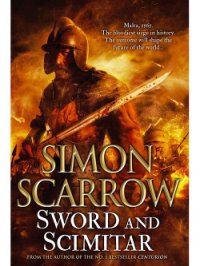The Fields of Death - Scarrow Simon (читаем книги онлайн бесплатно txt) 📗
Napoleon stared at the fleeing enemy, too exhausted and too bitter at the cost of the battle to feel any triumph. As the enemy began to pull back the French battalions did not pursue them. The men’s strength had gone. The heat of the two days and the numbing slaughter they had witnessed meant that they had reached the end of their endurance. There was nothing further that could be done with them, Napoleon realised. Any pursuit of the Austrians was out of the question, especially with Archduke John’s army at large. He could only sit on his horse and watch the enemy make their escape, all the while burning with frustration.
Berthier spoke tonelessly. ‘A victory then. My congratulations, sire.’
‘Victory?’ Napoleon blinked his aching eyes and scanned a landscape of shattered buildings, heaps of bodies and the mangled remains of those caught by the full blast of artillery fire. Amid the carnage, the survivors stood, or sat, in a daze, some drinking from their canteens as they slaked their day-long thirst. ‘If this is victory, then I wonder can France ever afford such a victory again?’
Chapter 11
Schцnbrunn, 23 October 1809
A chill wind was blowing across the parade ground outside the yellow and cream walls of the palace, a short distance from Vienna. Overhead the sky was grey and threatened rain. Even so, the display had attracted the usual crowd of people from the city who had paid for tickets to view the spectacle of the Imperial Guard marching in formation, to the tunes struck up by their bandsmen. Some had come to see Napoleon, curious to gaze upon the great man of the day. For most it was the only chance they had to see him since the French Emperor rarely ventured out in public, and then only to attend the opera or theatre, where he sat to the rear of his private box, giving the audience no more than an occasional glimpse of him.
Napoleon stood on the steps of the parade ground, watching his troops march past. It was ten days since the Austrians had finally signed a peace treaty with France. The negotiations had dragged on for months following the battle at Wagram. Emperor Francis had cavilled over every point, playing for time. Napoleon decided that Austria had to be punished, and the eventual agreement forced Emperor Francis to hand portions of his land to France, the Grand Duchy of Warsaw, Bavaria and Russia. Emperor Francis was also required to recognise Joseph as the legitimate King of Spain and to restrict the size of the Austrian army to no more than one hundred and fifty thousand men.
That, Napoleon smiled to himself, had done much to diminish any future threat that might be posed by Austria. As a final reminder to Emperor Francis of the new balance of power that existed between Austria and France, Napoleon had delayed his withdrawal from Vienna. Today’s parade was to be one of the last reviews before the Grand Army began its march back to the Rhine.
The last company of guardsmen stamped to a halt at the end of the line and then a silence fell across the parade ground as Napoleon surveyed the men before him. Four regiments of the Old Guard, the finest soldiers in his army. He gazed fondly at them, even though he kept his severe expression fixed. Many of these men had fought for him at Marengo and Austerlitz. To join their ranks a man had to have served a minimum of five years and fought in two campaigns. That was before they were even considered for selection. The men stared directly ahead, many sporting extravagant moustaches and beards. Their uniforms were clean, their white cross-straps a brilliant white, and their buttons gleamed, due to long hours of careful application of tripoli powder. Their tall bearskin hats and proud bearing made the men seem larger than other soldiers and Napoleon knew that their appearance alone on the battlefield was enough to unsettle an enemy. When they went into action they were utterly fearless and ferocious and only the finest of their foes ever dared to hold their ground against the Imperial Guard.
Napoleon slowly paced down the stairs, followed by Berthier and General Rapp, the commander of the brigade being reviewed. Approaching the guardsmen, Napoleon began his inspection as he strode along each line, occasionally stopping to exchange a word with one of the veterans, conspicuous thanks to the chevrons on their sleeves denoting the number of campaigns they had fought in.
Once the inspection was over, Napoleon returned to the stairs and began to award the promotions, decorations and prizes to each of the recipients called out from the ranks. Each man approached the Emperor smartly, stood to attention while his citation was bellowed out by General Rapp, and then received the appropriate reward, together with the profuse congratulations of his Emperor. But all the time, Napoleon’s mind flitted from one preoccupation to another.
Foremost in his mind was the coming confrontation with the Empress Josephine. His heart felt heavy with remorse at what he must do when he returned to Paris. France needed an heir to the throne. Only royal blood would do, since it would make it impossible for rival rulers to deny that a child of Napoleon lacked the breeding required to rule as the equal of any other emperor, king or tsar. Even though the logic of his decision to divorce Josephine was unassailable, still he felt the sour grief of being forced to act contrary to his will. Despite all the infidelities on both sides, and his frequent despair over her profligacy, Napoleon loved her as no other. It was as if their hearts and minds were bound together, and the prospect of her enforced rejection crushed almost any notion of pleasure in his life.
Once the last of the guardsmen had received his award, General Rapp ordered the soldiers to shoulder their muskets and then, as the band struck up, the battalions marched off the parade ground. As the last company passed by the civilian sightseers began to spill out across the parade ground. Napoleon turned to Berthier.
‘How are preparations for the army’s departure progressing?’
‘The last two corps are ready to march. The imperial baggage train is packed and can leave at any time. There’s only one issue to resolve.’ Berthier paused. ‘That’s the sale of surplus supplies, ammunition and equipment we captured from the Austrians.’
‘What’s the problem?’
‘The Austrians refuse to pay the price agreed when we signed the treaty.’
‘What are they saying?’
‘They’ll pay thirty million francs, sire.’
Napoleon shook his head with a dry laugh. ‘Thirty million! They must think me a fool. No, the price is fifty million, as we agreed. If they don’t pay up then tell that fool, Prince Metternich, that we will not leave Vienna until they do.’ Napoleon’s resolve hardened even as he spoke and he thrust a finger into Berthier’s chest. ‘You also tell him that if we are not paid in full by the end of the year then I will regard the treaty as having been broken, and that means war. You tell him that!’
‘Yes, sire. As you wish.’
‘Austrian bastards,’ Napoleon hissed through gritted teeth. ‘They brought this war on themselves. Emperor Francis is in no position to change the peace terms. I will bring them to heel, whatever it takes.’
He turned away and made his way down the steps to head back across the parade ground to his quarters in the palace. As he did so a young man stepped forward from the milling crowd of awed sightseers and strode towards him. Napoleon noticed him at the last moment and drew up with a scowl.
‘What’s this?’
‘Sire,’ the man said, eyes wide and staring.‘I bring you a petition from all Germans.’
Napoleon glanced over the youth. He was blond-haired, blue-eyed, and broad-shouldered beneath his plain black coat. Napoleon shook his head. ‘You must take it to my clerks. They deal with such matters. Now, then, if you would step away.’




